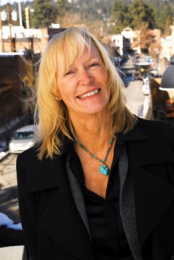 At a recent City Club of Central Oregon forum a Bend city councilor, in response to questions about electing Bend’s mayor, said: If it’s not broke, don’t fix it. One might assume from that statement that: all is well at city hall and don’t mess with a good thing.
At a recent City Club of Central Oregon forum a Bend city councilor, in response to questions about electing Bend’s mayor, said: If it’s not broke, don’t fix it. One might assume from that statement that: all is well at city hall and don’t mess with a good thing.
Well all is not well at Bend City Hall and there’s a lot that could be fixed, which is just one argument for electing the city’s mayor who could provide a vision for the city that resonates with its residents.
Although the council voted last August to keep the mayor an appointed position, Councilor Jodie Barram recently asked the councilors to reconsider the decision. The council, however, discussed it at their goal setting retreat last month and decided not to move ahead with any changes to the City Charter, including putting the elected mayor issue on the ballot.
And yet a vote taken at the City Club forum showed a clear majority of those in attendance favored an elected mayor. The question was posed: Should the Mayor of Bend be determined by popular vote of the citizens? 30 people in attendance favored and 15 were opposed. It’s a small sampling, but from letters and emails we’ve received we suspect it coincides with the sentiments of the general population.
Why should a few people sitting on the council (councilors who were elected to office only by their district’s voters and not by the city as a whole) decide the leader of the city, especially a growing and evolving city with a constant stream of new issues? Why is Bend the largest city in Oregon with just an appointed mayor? And why does the city struggle to maintain a strong working relationship with the business community?
A paramount issue today is the Surface Water Improvement Project, which is hotly contested by community members. You can read in this issue the city’s response to concerns voiced by a group called Stop the Drain Coalition. The city council has generally supported the staff and consultants recommendation to go forth with the $68 million project, but no one on the council has actually taken a leadership role in defending it, leaving instead the city engineer to respond to concerns and questions.
A new issue has come to light that the council appears to be taking far too lightly. This is the preservation of a vital icon to the City of Bend, the historic Goodwillie-Allan-Rademacher House in downtown Bend on the river. It has been Arts Central’s headquarters since 1994, but the organization will be moving this month because of unpleasant loitering and criminal activities occurring in the square adjacent to the facility as well as issues over the use of the space as an income generating gallery and the taxes owed on the property (the City of Bend owes the property and leased it to Arts Central for $1 a year). Arts Central was a wonderful tenant for the space, bringing community members as well as tourists to the site for numerous types of gatherings. Someone from the City of Bend should have tried to keep them there.
While Arts Central may be better suited to conduct its classes and arts advocacy from the Art Station in the Old Mill District, the use of the historic building should be a high priority for the council. The building is the highlight of the riverfront square in downtown Bend where numerous activities and special events have occurred over the years. The city council must take a leadership role in not only securing the property from unsavory activities but finding a long term suitable use for the building, one that will best serve the community.
Bend residents should have an opportunity to elect their own mayor, not because other cities of our size do it, but because this city needs a vision. And the person serving as leader of our city should answer directly to the voters. It would be nice to hear what the top elected official in the city saw as the primary goals of the city: how to improve our economy, solve our water and sewer issues, taxes, transportation, handicapped access and a myriad of other challenges facing Bend. We want to be able to choose a leader who best fits our views of the current challenges as well as a vision for the future. pha




